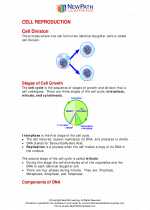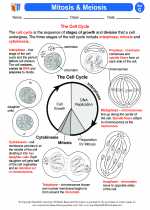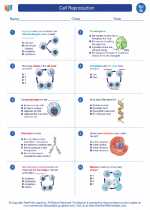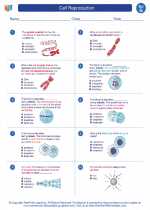Optical Instruments
Optical instruments are devices that use lenses, mirrors, and other optical components to manipulate light in order to enhance our ability to see distant or small objects, or to detect and measure light and other electromagnetic radiation. There are various types of optical instruments, each designed for specific purposes.
Types of Optical Instruments
- Microscopes: Used to view small objects that are not visible to the naked eye.
- Telescopes: Designed to observe distant objects such as stars, planets, and galaxies.
- Cameras: Capture and record images using lenses and light-sensitive film or digital sensors.
- Binoculars: Optical instruments consisting of two telescopes mounted side by side and aligned to point in the same direction, allowing for binocular vision.
- Periscopes: Used to see objects that are not in the direct line of sight, often used in submarines and tanks.
- Spectrometers: Instruments used to measure properties of light over a specific portion of the electromagnetic spectrum.
Study Guide for Optical Instruments
When studying optical instruments, it is important to understand the following key concepts:
- Light and Lenses: Understand how light is refracted and how lenses bend light to form images.
- Types and Uses: Be able to differentiate between different types of optical instruments and their specific uses.
- Optical Principles: Learn about the basic principles that govern the functioning of optical instruments, such as reflection, refraction, and dispersion of light.
- Applications: Explore the various real-world applications of optical instruments in fields such as astronomy, biology, photography, and physics.
- Working Mechanisms: Understand the working mechanisms of specific optical instruments, such as the components of a microscope or the focusing system of a camera.
By mastering these concepts, you will gain a comprehensive understanding of optical instruments and their significance in the field of science and technology.
.◂Science Worksheets and Study Guides Seventh Grade. Cell Reproduction
Study Guide Cell Reproduction
Cell Reproduction  Activity Lesson
Activity Lesson Mitosis & Meiosis
Mitosis & Meiosis  Worksheet/Answer key
Worksheet/Answer key Cell Reproduction
Cell Reproduction  Worksheet/Answer key
Worksheet/Answer key Cell Reproduction
Cell Reproduction  Worksheet/Answer key
Worksheet/Answer key Cell Reproduction
Cell Reproduction  Vocabulary/Answer key
Vocabulary/Answer key Cell Reproduction
Cell Reproduction  Vocabulary/Answer key
Vocabulary/Answer key Cell Reproduction
Cell Reproduction  Vocabulary/Answer key
Vocabulary/Answer key Cell Reproduction
Cell Reproduction  Vocabulary/Answer key
Vocabulary/Answer key Cell Reproduction
Cell Reproduction  Vocabulary/Answer key
Vocabulary/Answer key Cell Reproduction
Cell Reproduction  Vocabulary/Answer key
Vocabulary/Answer key Cell Reproduction
Cell Reproduction  Vocabulary/Answer key
Vocabulary/Answer key Cell Reproduction
Cell Reproduction  Vocabulary/Answer key
Vocabulary/Answer key Cell Reproduction
Cell Reproduction 

 Activity Lesson
Activity Lesson
 Worksheet/Answer key
Worksheet/Answer key
 Worksheet/Answer key
Worksheet/Answer key
 Worksheet/Answer key
Worksheet/Answer key
 Vocabulary/Answer key
Vocabulary/Answer key
 Vocabulary/Answer key
Vocabulary/Answer key
 Vocabulary/Answer key
Vocabulary/Answer key
 Vocabulary/Answer key
Vocabulary/Answer key
 Vocabulary/Answer key
Vocabulary/Answer key
 Vocabulary/Answer key
Vocabulary/Answer key
 Vocabulary/Answer key
Vocabulary/Answer key
 Vocabulary/Answer key
Vocabulary/Answer key

The resources above cover the following skills:
LIFE SCIENCE
From Molecules to Organisms: Structures and Processes
Gather and synthesize information to explain how prokaryotic and eukaryotic cells differ in structure and function, including the methods of asexual and sexual reproduction.